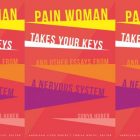What Would Orwell Make of This Election?

Orwellian. The word has become a catch-all describing an invisible yet ubiquitous bureaucracy whose tentacles influence every corner of citizens’ lives. Conservatives and liberals use the term with disgust. Would that it meant something else, if only because it identifies the author with his best-known—if not best—work, 1984, while ignoring the rest of his contributions to English letters.
The micro definition of Orwellian refers to those times when words act as a sunny euphemism for the purpose of obscuring something sinister (A cynic would say this describes the profession known as “marketing.”). The inverse is also true, especially in political writing. This interpretation also nods to 1984, but encompasses the scope of Orwell’s writing, a career devoted to shining light on injustices large and small.
The oft-cited “Politics and the English Language,” published in 1946 in Horizon is Orwell’s attempt to make political prose less, well, Orwellian.
Clocking in at just over 5,000 words, the essay is part polemic and part proposal. Orwell knew he was pushing a boulder uphill, but he believed that the decline of thought and the language that clarifies it was “reversible.”
Seventy years later, as empiricism has taken leave from our politics and anyone with an internet connection is a potential pundit, Orwell’s hope “to give an appearance of solidity to pure wind” is a pipe dream.
Obfuscation is such an ingrained part of our politics that, after political debate, spokespersons for the candidates involved repair to what has been dubbed “The Spin Room” where they attempt to shape the opinion of influential commentators who, in turn, it’s said, influence voters.
Consider words like “pivot” and “narrative,” which are rampant within the parlance. Both parties are expert at spinning words to their liking—particularly on fevered issues like abortion and gun—but Republicans have become particularly adept at the practice. They’ve employed terms like “death tax” to describe the estate tax, “limousine liberals” to describe wealthy Democrats, “job creators” to describe billionaire conservatives, and, of course, “elites,” an all-encompassing term to describe educated people living on the coasts. A quick search of your favorite search engine will reveal many more.
This year’s presidential election been awash in spin. It’s also been dispiriting to many observers for the ugliness of its tone. The debate over Brexit in Orwell’s native England was bitter in the extreme. About the time we think language can’t get any coarser, we’re reminded that politics has always been a rough and tumble profession. Political historians point to the 1800 presidential contest between Thomas Jefferson and John Adams, statesman both, which was notably corrosive. The comparison is supposed to be comforting, but in fact it demonstrates that, though the technology may be different, the debased language in our politics hasn’t changed much at all. We’re supposed to progressing people.
Whether it’s outside the norm or not, I’m confident the contrast between Hillary Clinton’s use of language and Donald Trump’s will be studied for years to come. While Clinton, an attorney, arranges elaborate sentences on paid leave or tax policy, Trump shouts “build the wall!” and during debates he blurts “wrong” into the microphone and says Clinton is a “nasty woman.”
Though Trump lies a staggering amount even for a politician (according to Politifact less than a third of his statements are true), there is no mystery about what he’s saying. Where other candidates use dog whistles (an Orwellian term if ever there was one) in discussing race, Trump doesn’t even bother. His words are short and clear, which is what Orwell desires in our political discourse. Now, there is an irony that encapsulates this election season perfectly.
But let’s not get carried away. There is no way, George Orwell, a committed socialist, would have supported a Trump candidacy.



